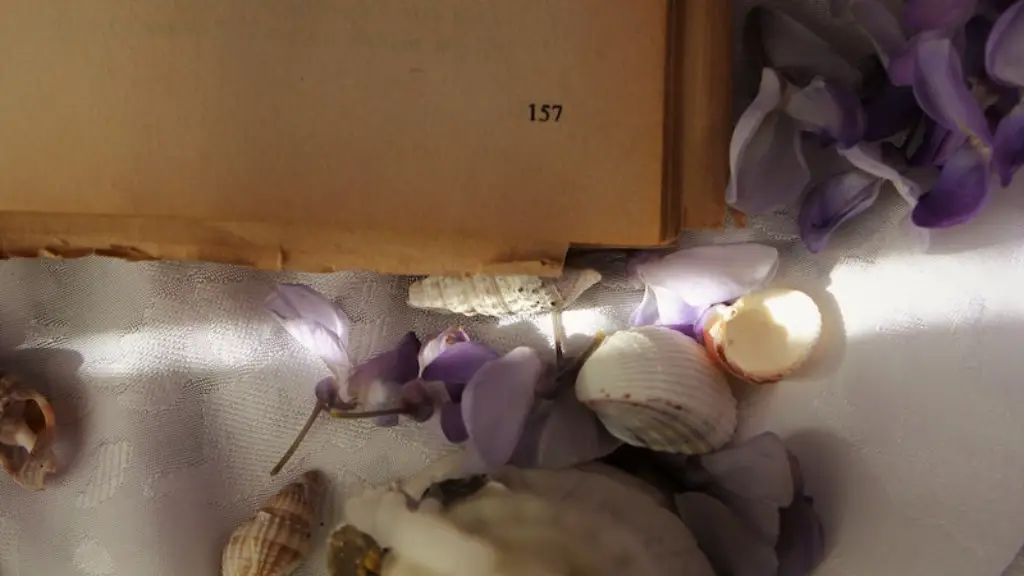When it comes to giving feedback on poetry, it is important to remember that it is a subjective art and personal taste is involved. That said, there are some tips and techniques that can be used to make sure that the feedback given is respectful and helpful. It is important to take the time to read and re-read the poem and give careful consideration to each component that makes up the poem, its structure, use of language, imagery, and meaning.
When giving feedback on poetry, it is essential to read the poem out loud. This can help to uncover new perspectives about the poem, as well as give an indication of how the poem sounds when spoken. It is important to listen to how the words sound, and how the poem moves from one line to another. It is also beneficial to consider the punctuation within the poem, and how it can emphasize certain words or bring attention to particular lines.
When giving feedback on poetry it is equally important to focus on the overall meaning of the poem. This can be done by examining the words used to convey the message, understanding the emotions hidden in the poem, and by looking at the deeper symbolism. When giving feedback on a poem, it is a good idea to focus on not just the meaning, but why the poet has decided to use certain words, tones, and structures.
When giving feedback on poetry it is important to remember that constructive comments are desired, rather than criticism. It can be beneficial to provide a detailed review of the poem, looking at what works and what could be improved. If commenting on the use of language, consider providing alternatives that may be a better fit, or different words that could be used to enhance the poem.
When giving feedback on poetry, it is important to consider how the poem may be interpreted by a different reader. It is essential to remember that personal taste and interpretation come into play when considering poetry, and that the feedback should reflect this. It can also be beneficial to provide feedback that does not judge or criticize the poet, but rather considers the poem from different angles.
In addition to the above tips, it is important to provide a space for the poet to express their own opinion. Allow them to explain how the poem is meant to be read, why they chose certain words and structures, and what they personally wanted to convey. It can also be useful to have a conversation about the poem and its potential meanings, which will give the poet the opportunity to explore their work in greater detail.
Delivering Feedback
The way in which feedback is delivered can greatly influence how it is received by the poet. It is important to be mindful and considerate and think before speaking, always being respectful and encouraging. Aim to connect with the poet and create an atmosphere in which feedback is welcomed and appreciated.
When delivering feedback, it is important to stay focused on the poem itself. Avoid bringing in personal stories, anecdotes, or irrelevant information which may distract from the poem. When possible, offer solutions rather than criticism and be as specific as possible about what works and what can be improved.
It is important to remember that giving feedback is a gift, and not something to be taken lightly. Provide feedback with care and thoughtfulness and always remember that personal taste and interpretation are involved.
Accepting Feedback
When receiving feedback on poetry, it is important to listen to the opinions and thoughts offered and be open to exploring the potential interpretations of the poem. It is important to remember that constructive criticism is a gift, and to try to consider the feedback offered with an open mind. If a comment is unclear, make sure to ask the person offering the feedback to explain what they mean.
It is also important to take time to process the feedback before reacting. Once an opinion has been shared, it is important to consider the potential validity of the suggestion made. Consider if the changes suggested are worth making, or if it is better to keep the original poem as-is.
When receiving feedback, it is also important to remember that personal taste and interpretation come into play. Not all feedback will be considered valid or helpful, and it is ok to disagree with some suggestions. In these cases, make sure to explain your reasoning, and to be kind and courteous when explaining your opinion.
Managing Criticism
When receiving criticism, especially when it is negative, it is important to try to stay composed and avoid impulsive reactions. Take the time to consider the comments, reflect upon what is being said, and decide how to best respond. Do not take criticism personally, and remember that it is best to focus on the poem, rather than the poet.
When it comes to managing criticism, it is important to remember that not all feedback is helpful or valid. It is ok to disagree with some suggestions, and to explain why. It can be helpful to explain why a certain suggestion is not being taken on board, as this allows for a better understanding between the parties involved.
It is important to remember that criticism is a part of life, even when it comes to the creative arts. It is essential to try to keep a level head, and to remember that criticism can be valid and useful. It can be beneficial to take a step back and ask yourself questions such as, “What is this criticism trying to tell me?” and “Is there any value in it?” Answering these questions can help to provide some clarity and objectivity when it comes to managing criticism.
Criticizing Responsibly
It is important to remember that when it comes to giving and receiving criticism, respect and compassion are essential. When giving feedback, focus on the poem itself and the potential changes that could be made, avoiding making personal comments or attacking the poet. Always be mindful of the tone you use and the language you choose when giving feedback.
When receiving criticism, remember that it is ok to not agree with all of the comments or suggestions made. Take the time to consider the criticism with an open mind before responding and take care to avoid personal attack or criticism in return. Do not take criticism personally and try to accept it as a gift that can help to improve your work.
Lastly, it is important to remember that criticism can help to improve the poem, and that constructive conversations can be beneficial, even if they are uncomfortable at times. Feedback can be used to help explore the poem in greater depth and dig deeper to uncover new perspectives or understandings.
Balancing Constructive Criticism
When giving feedback, it is important to remember to be constructive and encouraging. Avoid making comments that are overly negative, personal, or that could be considered disrespectful. Aim to provide useful and constructive advice that focuses on the poem, rather than attacking the poet. Focus on providing practical solutions and suggestions, rather than just listing what doesn’t work.
It is also important to remember to be encouraging and to provide positive comments in tandem with any negative criticisms. Knowing that a poem is appreciated, even if it is not perfect, can help to provide some comfort and assurance to the poet. Avoid making assumptions or judgments on the poem and take the time to consider its potential meanings.
When delivering feedback, aim to foster a holistic dialogue that provides space for the poet to express themselves and explain their choices, as well as for constructive criticism to be offered. Consider the poem from different angles and perspectives and ensure that both positive and negative comments are shared.
Providing Specific Examples
When delivering constructive criticism, it is important to provide specific examples of what can be improved or altered in the poem. This provides a clear direction for the poet which makes it easier for them to identify what needs to be changed, as well as how it can be done. It also helps to provide more concrete advice and encourages the poet to think more deeply about the poem.
When offering examples, be mindful of the tone used and make sure to be respectful and encouraging. It can be useful to provide alternatives that the poet can consider, or to suggest words or phrases that could help to better convey the message. Aim to offer advice that is appropriate to the poem and that can help to improve and enhance it.
It is also helpful to keep in mind that every poem is unique and that everyone interprets things differently. It is important to consider these differences and to ensure that the feedback provided is applicable and suitable for the individual poem.





